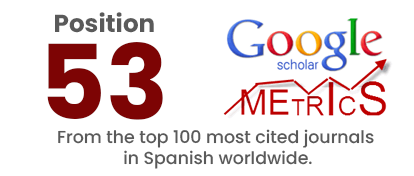Pedagogical Facilitation In The Development Of The Subject Potential Of Future Masters
DOI:
https://doi.org/10.36097/rsan.v5i20.523Keywords:
education, facilitation, psychological facilitation, teaching facilitation, facilitator, subject ofAbstract
The article presents the author's vision of the use of pedagogical facilitation in the development of the subject potential of future masters. The relevance of the possibility of using pedagogical facilitation in the preparation of future masters stated in the article is due to the fact that there is a new social and pedagogical phenomenon in the higher education in Russia - facilitation. The pedagogical facilitation in higher education is considered by us as "strengthening", increasing the productivity of education (teaching, upbringing, development) among the students as subjects of educational and professional activity. Pedagogical facilitation is a technology based on the use of a special style of communication by the university teacher in the context of the personality of teacher and student, based on the use of new ideas in the training group as a team to solve a particular problem. The main approach, based on the solution of this task, is the subject-oriented approach to the students of the university, which is necessary for the university teacher to create a facilitation situation for the student's development as a subject of educational and professional activity.Downloads
References
A.Sh. Khasanova, V.B. Vaks, G.M. Kvon, F.G. Mukhametzyanova, "Risks of Implementing the Innovative Approach in the Organization of the Educational Process in the University", Bulletin of the Belgorod University of Cooperation, Economics and Law, No. 3 (64), pp. 110-119, 2017.
A.Sh. Khasanova, G.M. Kvon, F.G. Mukhametzyanova, "Evaluation of the Prospects of Labor Market Development as Subjects of Professional Activity", Bulletin of the Belgorod University of Cooperation, Economics and Law, No. 1 (53), pp. 133- 137, 2015.
A.Sh. Khasanova, G.M. Kvon, F.G. Mukhametzyanova, "Cluster approach to the Investment Development of the Region", Bulletin of the Belgorod University of Cooperation, Economics and Law, No. 3 (55), pp. 137-142, 2015.
C. Keiner “Facilitator Guide. How to lead a group to the adoption of joint solutions”, M: Publisher Dmitry Lazarev, pp. 344, 2016.
D. Gray, “Gamestorming: A Playbook for Innovators, Rule-breakers, and Changemakers”, Kindle Edition, P. 290, 2010.
D. Sabirova, “Republic of Tatarstan: priorities of school foreign language education”, EDULEARN15 Proceedings 7th International Conference on Education and New Learning Technologies 2015, Barcelona, Spain, P. 7865-7869, 2015.
F.G. Muhametzyanova, N.S. Krasnenkova, L.F. Chukmarova, A.N. Kazakov, S.A. Kryukov, L.K. Obukhova “The Formation of Social-Psychological Competence In Professional Activity of Subjects Two Different Groups of Bank Workers”, Asian Social Science, Vol. 11, No. 1, e-Version First. - pp. 359-363, 2015.
F.G. Mukhametzyanova, R.R. Khayrutdinov, N.A. Sigacheva, "Modern Approaches to Modeling the Master's Level of Training", Human and Education, No. 2, pp. 77-81, 2017.
F.G. Mukhametzyanova, R.R. Khairutdinov "On the Facilitation Phenomenon in Higher Education", Kazan Pedagogical Journal, No. 1, pp. 45-51, 2017.
Juanita Brown, David Isaacs, Margaret J. Wheatley “The World Cafe: Shaping Our Futures Through Conversations That Matter”, Paperback, P. 300, 2005.
O.I. Rice, "Facilitation as a Method of Interactive Learning", Psychology, Sociology and Pedagogy. 2014. No. 7 (Electronic resource). – Access mode – URL: http://psychology.snauka.ru/2014/07/3317.
R. Schwarz “The Skilled Facilitator”, Hardcover, P. 432, 2002.
Y.T. Ibatullova, I.O. Vasyukhno, A.V. Frolova, F.G. Mukhametzyanova, E.V. Zelenkova, V.V. Sadovaya, “Interrelation of social and psychological adaptation and tendency to deviant behavior of students”, Asian Social Science, Vol. 11, No. 2, e-Version First. – pp. 290-295, 2015.


















